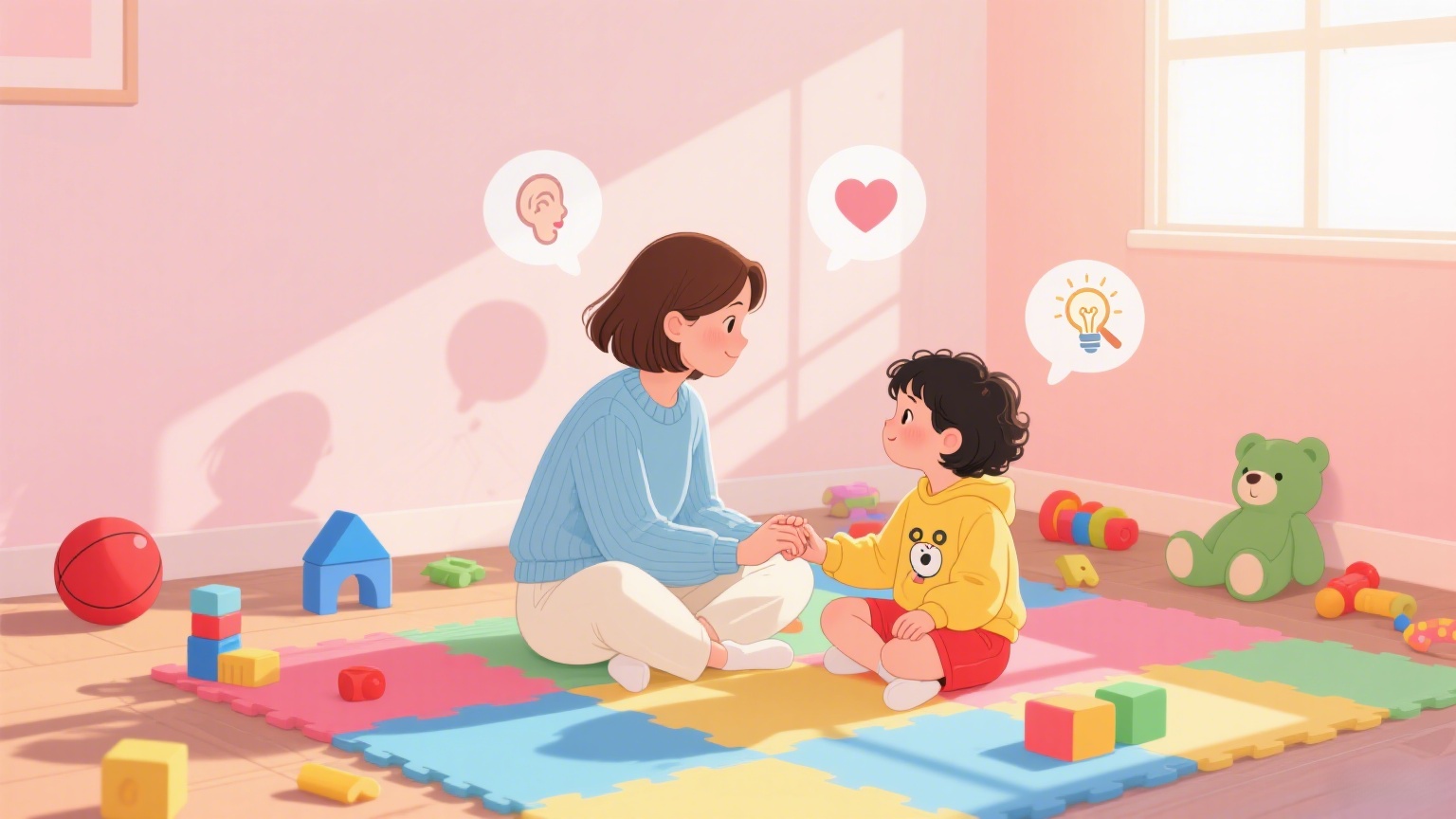1. Setting the Stage for Effective Communication
A. Create Focused Moments
- Get on their level: Kneel down to make eye contact and gently place a hand on their shoulder. Say, “I need you to look at me for a second.”
- Respect their focus: If they’re deeply engaged in play, wait 30 seconds before speaking rather than interrupting.
B. Multi-Sensory Engagement
- Visual cues: Point to objects while speaking (“See these blocks? They need to go back in the bin.”)
- Touch: Guide their hand toward the task (“Let’s put your shoes on together.”)
- Voice modulation: Use a firmer (but calm) tone for important instructions vs. casual conversation.
2. Boosting Cooperation Without Power Struggles
A. Playful & Creative Approaches
- Toy storytelling: “Mr. Teddy says, ‘If you don’t pick up your crayons, I’ll have nowhere to sit!’”
- Challenges & games: “Can you beat the timer and put away 10 toys before it dings?”
B. The 3-Step Transition Method
- Warning: “Screen time ends in 5 minutes.”
- Reminder: “2 minutes left—finish your level!”
- Choice: “Do you want to turn it off, or should I?”
3. Ensuring They Actually Heard You
A. Verify Understanding
- Instead of “Did you hear me?” → “Tell me what I just asked you to do.”
- Have them repeat back: “What are the three things we need at the store?”
B. Clear, Step-by-Step Instructions
- ❌ “Clean your room.” (Too vague)
- ✅ “First, put the books on the shelf. Then, bring your dirty clothes to the hamper.”
4. Handling Resistance & Distractions
A. Emotional Connection
- Share feelings: “When you don’t answer me, I feel ignored. Can we talk about it?”
- For serious talks: “This is hard for me to say, but I need you to listen.” (Grabs attention.)
B. For Kids Who Struggle to Focus (e.g., ADHD)
- Direct commands: “Put your plate in the sink.” (Not “Could you…?”)
- Break tasks down: “Step 1: Pick up the Legos. Step 2: Put them in the blue box.”
Why This Works
- Reduces power struggles by giving choices and making tasks manageable.
- Builds listening skills through clear, engaging communication.
- Strengthens connection by showing respect for their focus and feelings.
Try one technique at a time—consistency is key!








